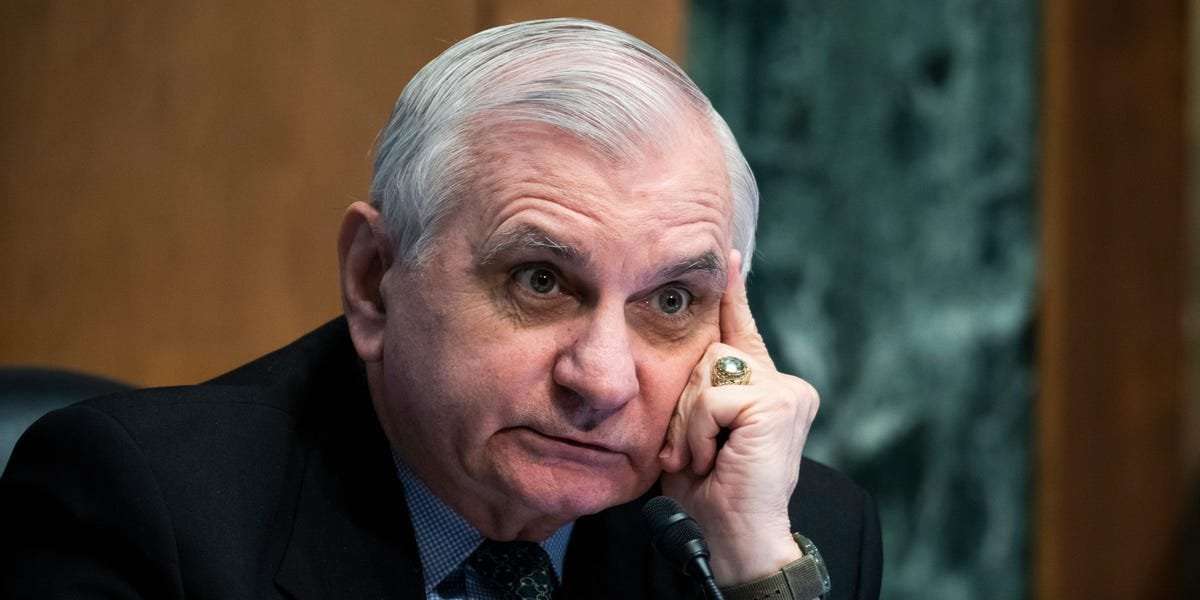The fallout from a Russian nuclear strike on Ukraine could drift into NATO countries, said Sen. Jack Reed.
This could be "perceived as an attack" on NATO itself, said Reed, who chairs the Senate Armed Services Committee.
NATO chief Jens Stoltenberg also said a WMD strike could mean "dire consequences" for allied nations.
Sign up for our weekday newsletter, packed with original analysis, news, and trends — delivered right to your inbox. Loading Something is loading. Email address By clicking ‘Sign up’, you agree to receive marketing emails from Insider as well as other partner offers and accept our Terms of Service and Privacy Policy
Should Russia use a nuclear weapon on Ukraine, any fallout that drifts into a nearby NATO country could be considered an attack on a coalition member, said Senate Armed Services Committee chair Jack Reed on Wednesday.
"If a nuclear device is detonated and the radiation goes into a [neighboring] country, that could very well be perceived as an attack against NATO," said Reed, who represents Rhode Island, according to US military news site Military.com.
According to the alliance's defensive pact, an attack on one NATO nation is an attack on all its members. As such, there would be "consequences" if Russian President Vladimir Putin were to order a chemical, biological, or nuclear strike on Ukraine, per The New York Times.
Reed said, however, that the US is unlikely to take military action on its own should such an attack occur and that NATO would make the decision, the outlet reported.
"It's going to be a very difficult call, but it's a call that not just the president but the entire NATO Council will have to make," he said, per The Times.
Reed's statements echoed the words of NATO Secretary-General Jens Stoltenberg, who said on the same day that the use of chemical weapons or biological weapons in Ukraine "may also have dire consequences for NATO Allied countries" and their peoples.
Stoltenberg said that while NATO would try to help Ukraine find ways to shore up its defenses against a chemical attack, nearby member nations were still at risk of "the spread of chemical or biological agents."
"So it just underscores the seriousness of all our concerns," he said.
On February 27, three days after Russia's invasion of Ukraine began, Putin placed his nation's nuclear forces on high alert while blaming NATO for what he described as "illegitimate sanctions" and "hostile actions."
On Monday, Biden warned that Moscow could be planning chemical or biological attacks now that Putin's "back is against the wall" due to the fierce resistance from Ukrainian forces.
"He's already used chemical weapons in the past, and we should be careful of what's about to come," Biden said, refuting the Russian leader's claims that the US stockpiled chemical weapons in Ukraine.
Earlier this month, Biden said Russia would "pay a severe price" if it were to deploy chemical weapons in Ukraine.

InoyouS2 on March 24th, 2022 at 09:55 UTC »
The 2020s have thus far been, for lack of a better word, a bit shit.
EternalSighs on March 24th, 2022 at 06:42 UTC »
the continuous chatter about this feels mighty foreboding
battletoasta on March 24th, 2022 at 05:48 UTC »
I don’t like this ride and want to get off please.